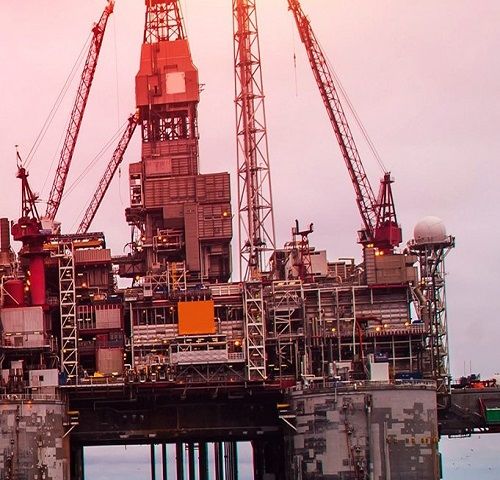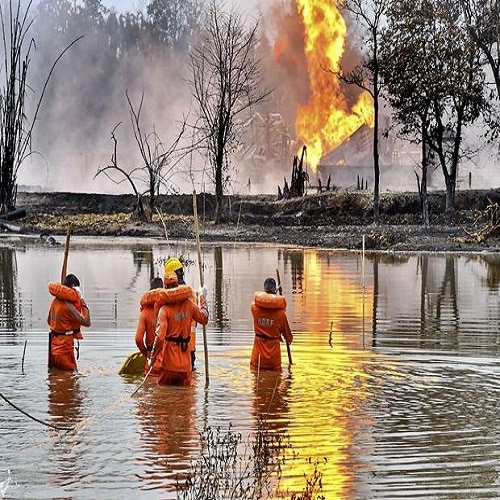Rishi Sunak has unveiled plans to issue hundreds of new oil and gas licences in the North Sea as part of efforts to make Britain more energy-independent.
This includes projects in Acorn in north-east Scotland and Viking in the Humber that have been chosen as the third and fourth CCS clusters in the UK. These projects follow pre-existing plans to deploy CCS in two industrial clusters by the mid-2020s – the HyNet cluster in north-west England and north Wales, and the East Coast cluster on Teesside and the Humber.
But CCS technology has attracted criticism from climate campaigners who believe it is being used by high-carbon industries to ‘greenwash’ their operations.
According to a coalition of human rights and environmental groups, carbon offsetting will never be able to absorb the sheer volume of greenhouse gases countries plan to emit under their current net zero plans.
Climate campaigners have also expressed concerns over today’s announcement. Oxfam’s climate change policy adviser, Lyndsay Walsh, said: “Today’s wrongheaded decision is yet another example of the government’s hypocritical and dangerously inconsistent climate policy.
“Extracting more fossil fuels from the North Sea will send a wrecking ball through the UK’s climate commitments at a time when we should be investing in a just transition to a low-carbon economy and our own abundant renewables.
“As millions of people in low-income countries are pushed deeper into hunger and poverty by a climate crisis they haven’t caused, high-emitting and wealthy countries like the UK can no longer just talk the talk – they must walk the walk.”
Greenpeace’s Philip Evans said the new announcement “is nothing but a cynical political ploy to sow division, and the climate is collateral damage”.
“Just as wildfires and floods wreck homes and lives around the world, Rishi Sunak’s government has decided to row back on key climate policies, attempted to toxify net zero, and recycled old myths about North Sea drilling,” he said.
“Relying on fossil fuels is terrible for our energy security, the cost of living, and the climate. Our sky-high bills and recent extreme weather have demonstrated that. Rishi Sunak knows that any oil and gas from the North Sea will just be sold on the international market, making oil companies even richer at the expense of the rest of us. How will this help our bills exactly?”
The North Sea Transition Authority (NSTA), which is responsible for maximising the economic recovery of oil from the North Sea, said that all future licensing rounds would continue to be subject to a climate compatibility test.
The body also said that a more flexible application process would allow licences to be offered close to areas that are already licensed in an effort to unlock reserves which can be brought online faster due to existing infrastructure.
The independent Climate Change Committee, which advises the government on climate change, has predicted that around a quarter of the UK’s energy demand will continue to be met by oil and gas by 2050 when the UK plans to reaches net zero carbon emissions.
According to Sunak, the new licences will also help to increase the UK’s energy security, reduce dependence on higher-emission imports, and protect more than 200,000 UK jobs.
The NSTA is currently running the 33rd offshore oil and gas licensing round. They expect the first of the new licences to be awarded in the autumn, with the round expected to award over 100 licences in total.
“We have all witnessed how Putin has manipulated and weaponised energy – disrupting supply and stalling growth in countries around the world,” Sunak said.
“Now more than ever, it’s vital that we bolster our energy security and capitalise on that independence to deliver more affordable, clean energy to British homes and businesses.
“Even when we’ve reached net zero in 2050, a quarter of our energy needs will come from oil and gas. But there are those who would rather that it come from hostile states than from the supplies we have here at home.
“We’re choosing to power up Britain from Britain and invest in crucial industries such as carbon capture and storage, rather than depend on more carbon-intensive gas imports from overseas – which will support thousands of skilled jobs, unlock further opportunities for green technologies and grow the economy.”
The government has committed to provide up to £20bn in funding for early deployment of CCS, unlocking private investment and job creation.
Energy security secretary Grant Shapps said that Britain’s burgeoning CCS sector will “help to build a thriving new industry for our North Sea that could support as many as 50,000 jobs”.
Source: E&T











